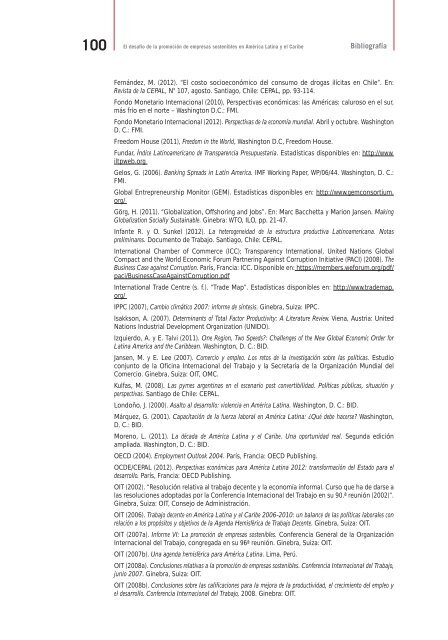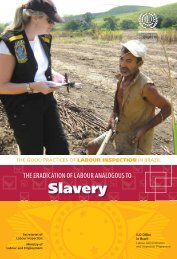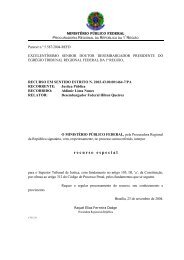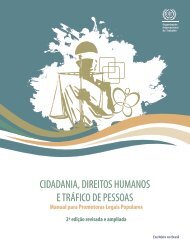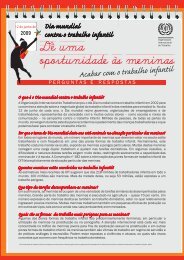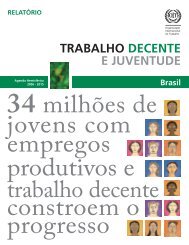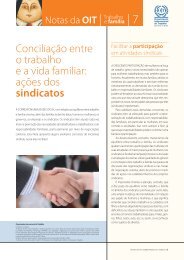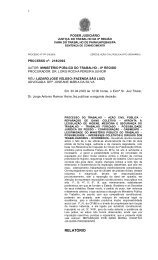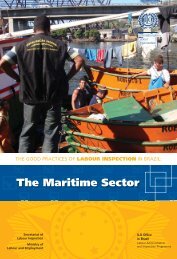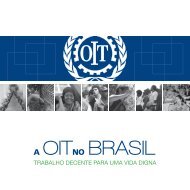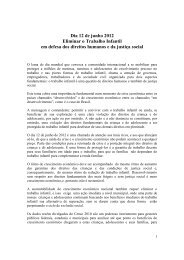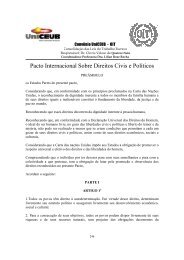Empresas Sostenibles en América Latina y el Caribe:
Empresas Sostenibles en América Latina y el Caribe:
Empresas Sostenibles en América Latina y el Caribe:
- No tags were found...
You also want an ePaper? Increase the reach of your titles
YUMPU automatically turns print PDFs into web optimized ePapers that Google loves.
100El desafío de la promoción de empresas sost<strong>en</strong>ibles <strong>en</strong> América <strong>Latina</strong> y <strong>el</strong> <strong>Caribe</strong>BibliografíaFernández, M. (2012). “El costo socioeconómico d<strong>el</strong> consumo de drogas ilícitas <strong>en</strong> Chile”. En:Revista de la CEPAL, N° 107, agosto. Santiago, Chile: CEPAL, pp. 93-114.Fondo Monetario Internacional (2010), Perspectivas económicas: las Américas: caluroso <strong>en</strong> <strong>el</strong> sur,más frío <strong>en</strong> <strong>el</strong> norte – Washington D.C.: FMI.Fondo Monetario Internacional (2012). Perspectivas de la economía mundial. Abril y octubre. WashingtonD. C.: FMI.Freedom House (2011), Freedom in the World, Washington D.C, Freedom House.Fundar, Índice Latinoamericano de Transpar<strong>en</strong>cia Presupuestaria. Estadísticas disponibles <strong>en</strong>: http://www.iltpweb.orgG<strong>el</strong>os, G. (2006). Banking Spreads in Latin America. IMF Working Paper, WP/06/44. Washington, D. C.:FMI.Global Entrepr<strong>en</strong>eurship Monitor (GEM). Estadísticas disponibles <strong>en</strong>: http://www.gemconsortium.org/Görg, H. (2011). “Globalization, Offshoring and Jobs”. En: Marc Bacchetta y Marion Jans<strong>en</strong>. MakingGlobalization Socially Sustainable. Ginebra: WTO, ILO, pp. 21-47.Infante R. y O. Sunk<strong>el</strong> (2012). La heterog<strong>en</strong>eidad de la estructura productiva Latinoamericana. Notaspr<strong>el</strong>iminares. Docum<strong>en</strong>to de Trabajo. Santiago, Chile: CEPAL.International Chamber of Commerce (ICC); Transpar<strong>en</strong>cy International, United Nations GlobalCompact and the World Economic Forum Partnering Against Corruption Initiative (PACI) (2008). TheBusiness Case against Corruption. París, Francia: ICC. Disponible <strong>en</strong>: https://members.weforum.org/pdf/paci/BusinessCaseAgainstCorruption.pdfInternational Trade C<strong>en</strong>tre (s. f.). “Trade Map”. Estadísticas disponibles <strong>en</strong>: http://www.trademap.org/IPPC (2007), Cambio climático 2007: informe de síntesis. Ginebra, Suiza: IPPC.Isakkson, A. (2007). Determinants of Total Factor Productivity: A Literature Review. Vi<strong>en</strong>a, Austria: UnitedNations Industrial Dev<strong>el</strong>opm<strong>en</strong>t Organization (UNIDO).Izquierdo, A. y E. Talvi (2011). One Region, Two Speeds?: Chall<strong>en</strong>ges of the New Global Economic Order for<strong>Latina</strong> America and the Caribbean. Washington, D. C.: BID.Jans<strong>en</strong>, M. y E. Lee (2007). Comercio y empleo. Los retos de la investigación sobre las políticas. Estudioconjunto de la Oficina Internacional d<strong>el</strong> Trabajo y la Secretaría de la Organización Mundial d<strong>el</strong>Comercio. Ginebra, Suiza: OIT, OMC.Kulfas, M. (2008). Las pymes arg<strong>en</strong>tinas <strong>en</strong> <strong>el</strong> esc<strong>en</strong>ario post convertibilidad. Políticas públicas, situación yperspectivas. Santiago de Chile: CEPAL.Londoño, J. (2000). Asalto al desarrollo: viol<strong>en</strong>cia <strong>en</strong> América <strong>Latina</strong>. Washington, D. C.: BID.Márquez, G. (2001). Capacitación de la fuerza laboral <strong>en</strong> América <strong>Latina</strong>: ¿Qué debe hacerse? Washington,D. C.: BID.Mor<strong>en</strong>o, L. (2011). La década de América <strong>Latina</strong> y <strong>el</strong> <strong>Caribe</strong>. Una oportunidad real. Segunda ediciónampliada. Washington, D. C.: BID.OECD (2004). Employm<strong>en</strong>t Outlook 2004. París, Francia: OECD Publishing.OCDE/CEPAL (2012). Perspectivas económicas para América <strong>Latina</strong> 2012: transformación d<strong>el</strong> Estado para <strong>el</strong>desarrollo. París, Francia: OECD Publishing.OIT (2002). “Resolución r<strong>el</strong>ativa al trabajo dec<strong>en</strong>te y la economía informal. Curso que ha de darse alas resoluciones adoptadas por la Confer<strong>en</strong>cia Internacional d<strong>el</strong> Trabajo <strong>en</strong> su 90.ª reunión (2002)”.Ginebra, Suiza: OIT, Consejo de Administración.OIT (2006). Trabajo dec<strong>en</strong>te <strong>en</strong> América <strong>Latina</strong> y <strong>el</strong> <strong>Caribe</strong> 2006-2010: un balance de las políticas laborales conr<strong>el</strong>ación a los propósitos y objetivos de la Ag<strong>en</strong>da Hemisférica de Trabajo Dec<strong>en</strong>te. Ginebra, Suiza: OIT.OIT (2007a). Informe VI: La promoción de empresas sost<strong>en</strong>ibles. Confer<strong>en</strong>cia G<strong>en</strong>eral de la OrganizaciónInternacional d<strong>el</strong> Trabajo, congregada <strong>en</strong> su 96ª reunión. Ginebra, Suiza: OIT.OIT (2007b). Una ag<strong>en</strong>da hemisférica para América <strong>Latina</strong>. Lima, Perú.OIT (2008a). Conclusiones r<strong>el</strong>ativas a la promoción de empresas sost<strong>en</strong>ibles. Confer<strong>en</strong>cia Internacional d<strong>el</strong> Trabajo,junio 2007. Ginebra, Suiza: OIT.OIT (2008b). Conclusiones sobre las calificaciones para la mejora de la productividad, <strong>el</strong> crecimi<strong>en</strong>to d<strong>el</strong> empleo y<strong>el</strong> desarrollo. Confer<strong>en</strong>cia Internacional d<strong>el</strong> Trabajo, 2008. Ginebra: OIT.


